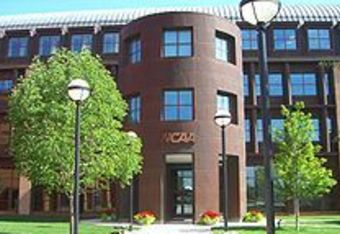The NCAA enforcement process is unfair and inconsistent. Three recent cases involving USC’s Reggie Bush, Auburn’s Cameron Newton, and North Carolina’s ineligible athletes show that the NCAA may be corrupt.
The secret but carefully orchestrated one day ineligibility of Auburn quarterback Cam Newton for violation of the recruiting amateurism rules once again demonstrates the corrupt culture of the NCAA.
The NCAA press release made it clear that Newton violated NCAA rule 12.3.3 because his minister father, Cecil Newton, and a scouting representative shopped him for at least $180,000 compensation to a college for an athletic scholarship. So far, there is no proof that money changed hands or that Auburn knew about it according to the NCAA.
But, in the USC case, Reggie Bush was declared ineligible and games were vacated before payments were made or Bush was involved because his step-father allegedly had discussions (based solely on hearsay by a felon who lied in other testimony) with a family friend to represent Bush in the NFL after leaving USC.
So, Newton should have been declared ineligible for all Auburn games this season for the same reason since his violation was committed prior to that time.
Note that the SEC bylaw 14.01.3.2 states:
“If at any time before or after matriculation in a member institution a student-athlete or any member of his/her family receives or agrees to receive, directly or indirectly, any aid or assistance beyond or in addition to that permitted by the Bylaws of this Conference (except such aid or assistance as such student-athlete may receive from those persons on whom the student is naturally or legally dependent for support), such student- athlete shall be ineligible for competition in any intercollegiate sport within the Conference for the remainder of his/her college career."This is the same Cam Newton who was thrown out of the University of Florida for his arrest on charges of stealing a laptop and he may have cheated multiple times in class as well: “Report: Cam Newton left Florida after charges of academic cheating.”
So, it is difficult to believe Newton now when he says that he didn’t know about his father, but the NCAA rules don’t require that he know to be ineligible. It is also hard to believe that he passes the Heisman “integrity” requirement.
Six North Carolina Tar Heels didn’t play this season due to the NCAA sports agent probe. The NCAA declared defensive end Robert Quinn and receiver Greg Little permanently ineligible, but none of the games they played in after the time they committed violations were vacated, unlike the USC Reggie Bush rulings.
The NCAA mistakes, unprecedented findings and sanctions against the USC Trojans seemed designed to destroy their heralded football program on the slimmest of shoddy evidence. The actions of the enforcement staff and COI (Committee of Infractions) during this time appear to be incompetent and/or dishonest.
It took the NCAA over four years to orchestrate the USC sanctions. It may have taken longer if the NCAA had not been so ridiculed about the delays.
Some members of the COI had obvious conflicts of interests. So how could all the 10 members sign off on the USC sanctions?
A possible explanation surfaced in one fan message board from a reliable source. Apparently, one of the NCAA committee members was very defensive about the USC case when talking to a booster group from the member’s school. This member said that the harshness of the penalties based on the flimsiest of evidence was not the member’s doing.
The reliable source talked to a legal expert who practices in front of the NCAA’s COI, and said this too often happens because the members depend too much on staff. In the USC case, it appears that a couple of people from the NCAA’s enforcement staff and a couple of COI members took the case over, and decided everything before the rest of the committee found out what was happening. The members then could either make a scene and walk out or quit, or go along and hope for the best.
So, it looks like the majority of the 10 committee members may have closed their eyes, and signed off on the document hoping for the best. However, the disparity between what happened to USC and what will surely not happen to any SEC or ACC school in similar situations makes this look like a bad bet.
After ganging up against USC, the news media is beginning to understand how badly the Trojans have been mistreated by the NCAA. Here are several articles about the double standard applied to USC and Auburn’s Cam Newton:
- Gary Klein, L.A. Times “USC football: Pat Haden surprised by NCAA decision regarding Cam Newton” on December 1, 2010
- Dan Wetzel, Yahoo Sports “NCAA decision on Newton opens Pandora’s box” on December 1, 2010
- Staff, CollegeFootballNews.Com “CFN Analysis – the Cam Newton Ruling” on December 1, 2010
- Sports by Brooks, “If the NCAA is Right, Cecil Lied and SEC Cheated” on December 2, 2010
- Bill Dwyer, L.A. Times, “Little Reggie, Little Cam and the NCAA” on December 2, 2010
- Associated Press, “John Swofford [ACC commissioner] criticizes NCAA ruling” on December 3, 2010
So, here are the likely changes:
Current rule: “12.3.3 Athletics Scholarship Agent. Any individual, agency or organization that represents a prospective student-athlete for compensation in placing the prospect in a collegiate institution as a recipient of institutional financial aid shall be considered an agent or organization marketing the individual's athletics ability or reputation.”
New rule: Same as above since there is nothing to clarify
What more is there to say about the NCAA’s willingness to rationalize and the corrupt culture that it takes to operate this way?
Is the public so passive that they will continue to allow the NCAA to represent our universities this way?
If you are sick and tired of the NCAA nonsense, write your University President and/or Athletic Director.

No comments:
Post a Comment